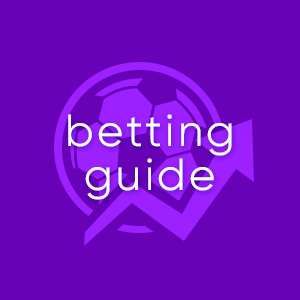Walking into the world of sports betting can feel like entering a foreign country where everyone is speaking gibberish at times.
Terms like “juice” and “parlay” get tossed around casually, leaving newbies confused and potentially leading to costly mistakes. Understanding betting slang isn’t just about fitting in; it’s about making informed decisions with your money.
This guide breaks down the key betting terminology you need to know, helping you navigate betting platforms more confidently and recognize what to say and when.
How Terminology Shapes Understanding
Betting terminology creates shorthand for longer words to try and simplify things. When someone says “I took the dog at +200,” they’re putting a couple of pieces of information together — they bet on the underdog at odds that would return CA$200 profit on a CA$100 wager. This means you’ll end up with a total of CA$300: CA$200 profit plus your CA$100 stake gets returned.
However, this isn’t super easy for newer players and can be a little bit intimidating or even make you misunderstand completely.
Some slang has evolved to make risky behaviours sound more appealing. For instance, calling something a “lock” suggests certainty where none exists, while “action” can normalize excessive betting activity. Understanding both official terminology and casual slang helps you evaluate information critically rather than simply accepting claims at face value.
Common Betting Slang You Need to Know
Juice/Vig: What It Means and Why It Matters
Juice (also called vig, short for vigorish) is the commission a sportsbook charges for accepting your bet. This is how betting platforms make money regardless of the outcome.
When you see odds listed as -110 on both sides of a bet, you’re looking at the juice in action: you need to risk CA$110 to win CA$100, meaning you must win more than 50% of your bets just to break even. Understanding how to calculate vig from a sports bet juice is crucial for evaluating whether a bet offers genuine value.
Break-even % = Risk / (Risk + Win) = 110 / (110 + 100) = 52.38%
Key points about juice:
- Lower juice means better value for bettors.
- Shopping for the best lines across multiple sportsbooks minimizes juice.
- Over hundreds of wagers, even small differences in juice compound dramatically.
Parlay: Definition, Appeal, and Risk
A parlay bet combines multiple individual bets into one wager, where all selections must win for the parlay to pay out. The appeal is pretty in your face — you can turn a small stake into a large payout.
The catch? All your selections must win. If even one leg loses, the entire parlay loses. Sportsbooks love parlays because the juice compounds with each additional selection, dramatically increasing their edge. And while the payouts look tempting, the true risk lies in how quickly the odds stack against you — even “safe” picks become volatile when tied together, making parlays one of the easiest ways to burn through your bankroll.
Point Spread and How to Read It
The point spread levels the playing field between mismatched teams by giving the underdog a head start or requiring the favourite to win by a certain margin.
How to read point spread:
- Toronto Raptors -6.5 (-110)
- Boston Celtics +6.5 (-110)
This means Toronto must win by seven or more points for a bet on them to pay out. Boston can lose by six or fewer points (or win outright) for a bet on them to win. The half-point prevents ties. The (-110) indicates the juice you’re paying on either side.
Moneyline: Straightforward Odds Explained
What does “moneyline” mean? It’s the simplest bet in sports. All you have to do is pick the winner, no point spread involved.
Moneyline example:
- Favourite: -180 (risk CA$180 to win CA$100)
- Underdog: +160 (risk CA$100 to win CA$160)
Negative numbers indicate how much you need to bet to win CA$100. Positive numbers show how much you’d win on a CA$100 bet. Moneylines offer straightforward action when you have a strong conviction about a winner but don’t want to worry about margins.
Over/Under (Totals): The Basics
Over/under betting focuses on the combined score of both teams rather than who wins. The sportsbook sets a total, and you bet whether the actual combined score will be over or under that number.
If the total is set at 218.5 points in a basketball game and the final score is 112-108 (220 combined), the over wins.
Handle: What It Represents
What does handle mean in betting? It’s the total amount of money wagered on a game, event, or across an entire sportsbook over a period. You’ll often see handle reported in news about the betting industry: “The Super Bowl handle reached $180 million in Nevada.”
Handle differs from revenue. A sportsbook might have a massive handle but modest revenue if the betting splits evenly and they’re only collecting juice.
Bankroll: Managing Your Betting Funds
Your bankroll is the total amount of money you’ve set aside specifically for betting. Without some solid bankroll management, you could be quickly betting yourself out of house and home.
Bankroll management principles:
- Never bet money you can’t afford to lose.
- Keep your betting funds separate from daily expenses.
- Reassess your bankroll regularly as it grows or shrinks.
Steam Move: Sudden Odds Movement
A steam move occurs when odds shift dramatically and quickly across multiple sportsbooks, typically indicating that sharp bettors (professionals with strong track records) have placed significant wagers on one side. This coordinated betting creates a domino effect as books adjust their lines to manage risk.
Steam moves can signal valuable information: injury news that hasn’t gone public, weather changes, or lineup announcements. However, following the steam blindly doesn’t guarantee success. By the time recreational bettors spot the move, the best odds may already be gone.
Dog/Favourite: Understanding Underdogs vs. Favourites
The favourite is the team or player expected to win. They’re easy to spot — just look for worse odds.
Betting against favourites can be awesome when the public is overvaluing one team, but it can also be a big risk. If you bet on the underdog for no reason, you are more often than not going to lose.
Lock (and Why It’s Risky)
In betting communities, a lock is supposed to be a sure-fire bet, one you just can’t lose. But let’s be real, the term represents one of the most dangerous pieces of gambling sayings because it encourages overconfidence and excessive risk-taking.
When someone calls a bet a lock, they’re either trying to convince themselves of certainty that doesn’t exist or attempting to influence others.
Action: Betting Activity or Volume
Action has multiple meanings in betting contexts. It can refer to having money at stake (“I’ve got action on tonight’s game”), the total betting volume on an event, or being actively engaged in betting. When sportsbooks talk about “getting action on both sides,” they mean they’ve attracted bets on all possible outcomes, which is far better for their overall risk.
Slang Across Different Betting Markets
Sports Betting vs. Casino Lingo
Key differences:
- Sports betting emphasizes handicapping and line shopping.
- Casino lingo relates to game-specific rules and betting patterns.
- Sports betting involves more external factors (injuries, weather).
- Casino terminology often relates to bankroll cycles and session management.
Prop Bets, Futures, and More
Beyond standard wagers, specialized betting markets have their own terminology.
Prop bets (proposition bets) focus on specific events within a game rather than the outcome. For example, “Will a player score over 25 points?” or “Will there be a safety in the football game?”
Futures involve betting on events that will be decided far in the future, like championship winners before the season starts. These tie up your money for longer, but if you’re right, the wins can be absolutely massive. However, unexpected injuries, slumps, or team changes can wipe out your bet long before the outcome is decided, making futures high-reward but high-risk wagers.
Responsible Gambling
Jargon That May Encourage Overconfidence
Certain betting terminology can create a false sense of security or expertise. Terms like “lock,” “can’t-miss,” and “guaranteed winner” should make you more skeptical than anything. Even phrases like “due for a win” reflect the gambler’s fallacy: past results don’t influence independent future events.
Recognizing Terms That Mask Risk
Fancy language in betting can downplay serious risks. “Taking action,” “having a sweat,” or calling losses “bad beats” can make problematic gambling sound harmless or even entertaining.
Tools and Advice for Staying Grounded
Responsible gambling practices:
- Set deposit limits on betting accounts.
- Use self-exclusion tools if needed.
- Track all bets to understand actual results versus perception.
- Take regular breaks from betting.
- Never gamble to solve financial problems.
- Seek help if betting negatively impacts relationships or finances.
Resources like responsible gambling helplines and support groups exist specifically for those who need assistance. Recognizing when betting transitions from entertainment to problem behaviour is crucial for long-term well-being.
FAQ
What does “juice” mean in betting, and how does it affect my profits?
Juice is the commission sportsbooks charge on bets, typically built into the odds. At standard -110 odds, you risk CA$110 to win CA$100, meaning you need to win approximately 52.4% of bets to break even rather than just 50%.
Are parlays really as risky as they sound, or can they be smart plays?
Parlays carry way more risk than single bets because all of your picks need to win, which is way harder than you think. The compounding juice means sportsbooks have a much larger edge on parlays than on straight bets.
Why do odds sometimes quickly shift? What’s a steam move?
Odds shift when sportsbooks adjust their lines based on betting action. A steam move specifically refers to dramatic, rapid line movement across multiple books simultaneously, usually indicating that sharp bettors have identified value and placed significant wagers.
What’s the difference between a favourite and a lock, and how cautious should I be?
A favourite is simply the team or player with the highest probability of winning according to the odds. A “lock” is slang suggesting a bet is guaranteed, which is never true in gambling. Be extremely cautious around anyone claiming locks.





 Giorgi Natsvlishvili
Giorgi Natsvlishvili 